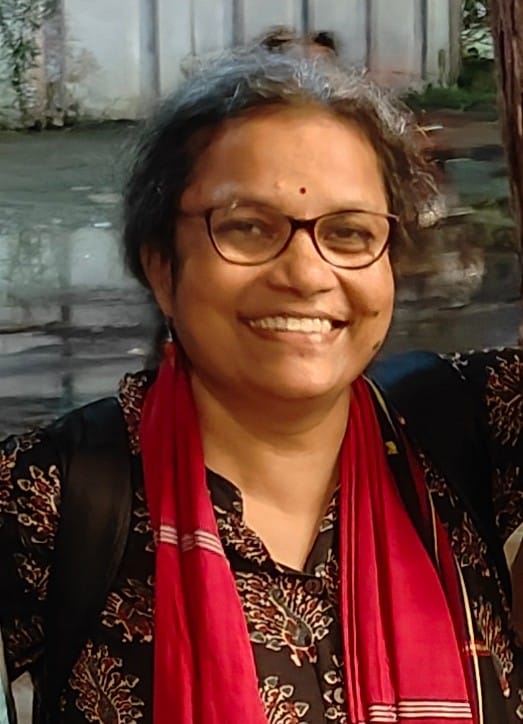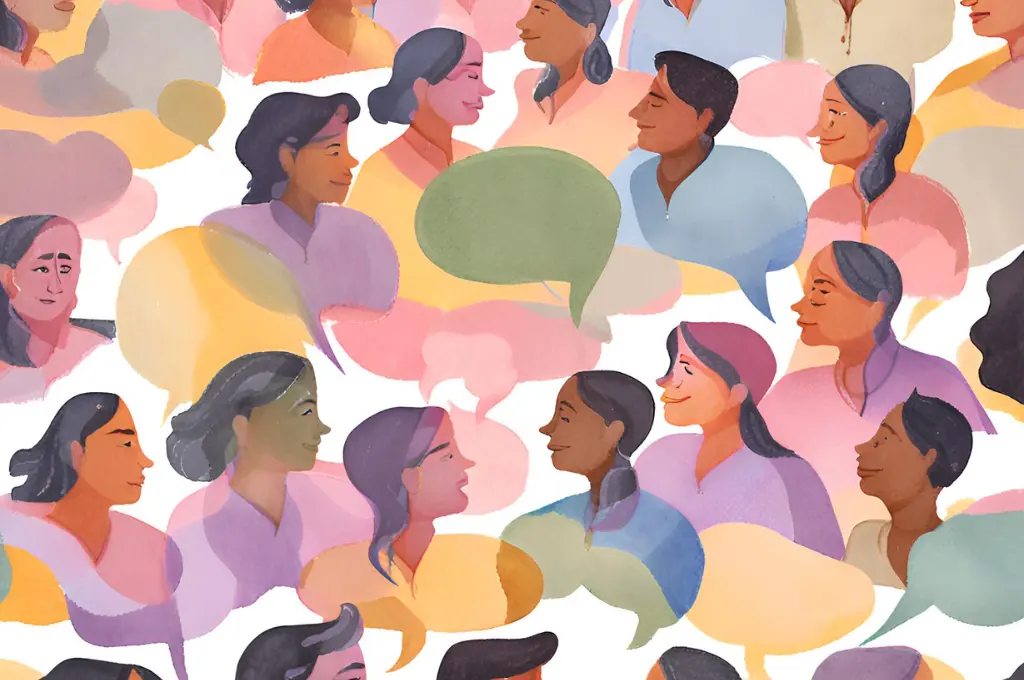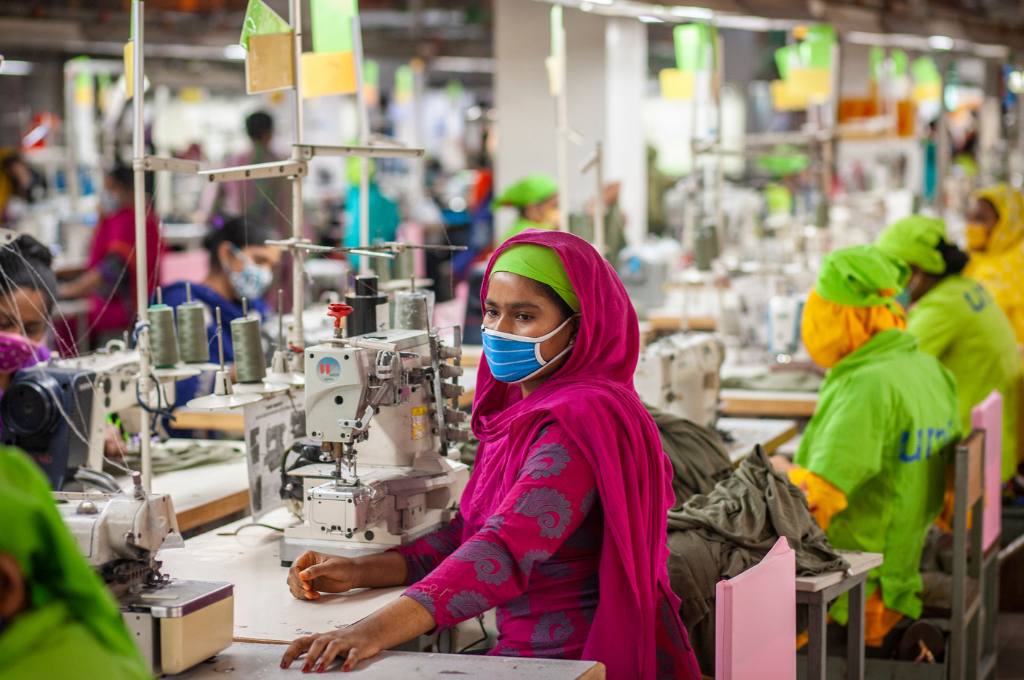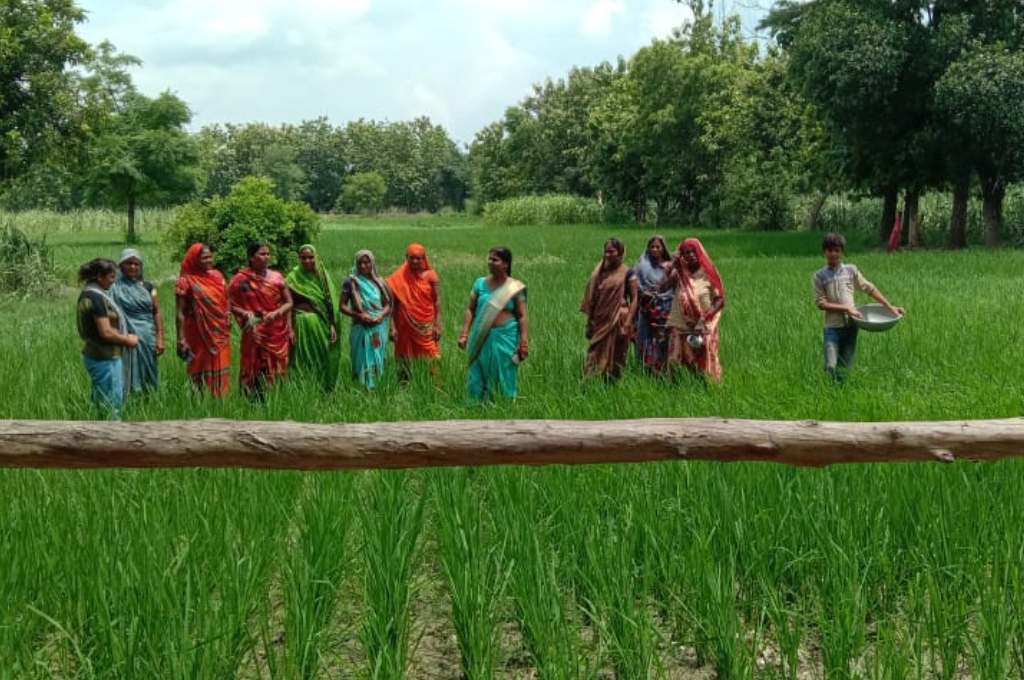Twenty-one states in India have reserved 50 percent seats in Panchayati Raj institutions (PRIs) for women. However, legislation by itself is not enough to secure political empowerment for women as citizens, nominees, elected members, and leaders. Elected women representatives (EWRs) face many challenges, not just when filing their nominations but also when, and if, they are elected.
When we at ANANDI—Area Networking and Development Initiatives—started work in the tribal districts of Panchmahals and Dahod in Gujarat in 1995, women did not want to participate in the electoral and political process because of structural, financial, and cultural barriers. Many of these obstacles continue to exist even today. The Global Gender Gap Report 2023 ranks India at 127 of 146 countries.
It is challenging for women to compete in the electoral process because they carry the burden of gendered work and don’t have support for their unpaid workload. According to the UNDP Gender Social Norms Index 2023, nearly half the world still believes that women are less capable than men in positions of power in politics. Faced with this prejudiced mindset, controlled mobility, restricted access to information, negligible access to technology, and, above all, no opportunity for community leadership, they are less likely to consider themselves qualified or equipped to compete in formal elections. Even after being elected, EWRs face backlash not only from their opposing panels but also in the form of intimate partner violence. Hostile social power structures and issues of caste and class make the system even more complex for women from Adivasi, Dalit, and other marginalised communities.
In the past two decades since the constitutional amendments reserving local seats for women were passed, there has been some shift in the number of women enthusiastic about joining the electoral process. In the 2021 election of the gram panchayats (GPs) in Devgadh Baria block, approximately 53 women got elected in PRIs and two became deputy sarpanches.
To push for such an outcome, ANANDI, along with a tribal women-led collective called Devgadh Mahila Sangathan, identified and trained more than 130 young people as gaon saathis, or friends of the village, in the area. After two to three years of exposure to gender issues, rights and entitlements, and citizen’s roles in building a development agenda, participants learned how to shape their election manifesto. We also hosted voter awareness campaigns to help them identify the kind of leader they would choose for their panchayat. Participants visited model panchayats in Gujarat and Kerala and interacted with senior government officials to learn about their work.

Training and capacity building
We need more dedicated leadership training and capacity-building sessions for women panchayat leaders that are accessible to them. Parliamentarians get this type of orientation and training.
Panchayati Raj training institutes in Gujarat do conduct sessions but these are not held at the block level, and EWRs find it challenging to travel long distances for them. Sometimes these sessions are conducted virtually. However, the training is not always contextual, and the instructions are technical and directional, with little or no scope for GPs to express ward-level realities. This is why we organise regular capacity-building sessions for GP members.
But to enable the GP to take charge of its role as a local institution for developmental planning and implementation, we need to build leadership not just among the elected GP members but also among other women and youth. Only this can truly activate the ward and gram sabha.
We use a participatory action learning system (PALS) to initiate dialogue with communities. Modules are designed around various issues such as unpaid and care work, gender division in labour and decision-making, rights, and citizenship. The modules hold space to learn from the lived realities of the participants. Groups can then prepare and attend the general village council with their own agenda and ensure their priority is built into the final approved list of works.
Collective support
Village-level collectives of women and youth trigger inter–generational dialogue and gender-responsive planning and action. In ANANDI’s experience, strengthening such collectives has led to increased attendance and participation during the PRI process. We pair literate women with experienced women (known as bhaneli–ganeli ni jodi) and train a pool of such pairs as gaam sangathan aagewans. Members of this bimonthly cluster-level forum do not directly participate in the electoral exercise. Instead, they take turns to accompany elected members for house visits to marginalised homes, difficult-to-reach hamlets, and government institutions for work related to individual and collective rights and entitlements. When EWRs begin their work, it helps to have this systematic hand-holding support.
We have also trained mahila nyay aamitis, or social justice committees, of the Devgadh Mahila Sangathan to address issues of violence against women. The committee campaigns to spread awareness on prevention of violence. This is important because, in tribal villages, the panch—a group of elders nominated by the community—forms the traditional mechanism of dispute resolution. Most panch meetings are held around marital issues, separation, land disputes, family disputes, and domestic violence. In most of these processes, the panch is comprised of men. Elected members are invited but, in most cases, husbands or other male proxy members represent women. Few women attend the panch in person and speak up. Instead of resorting to the panch or getting embroiled in the complexities of court cases, women approach the mahila nyay samiti, where they can be guaranteed space to speak up for themselves. Committee members carry out investigations and interventions.
However, ever since collectives and self-help groups of women have proven effective, women’s collectives are seen as instruments for all interventions. Our policies need to realise that these institutions cannot be merely instrumentalised. To be able to use the power of the institution effectively, we need to build the power of the leaders within the institution.
Bureaucracy and policy advocacy
Collectives often share on-ground information about what can make the electoral process accessible and fair to them. This works as evidence for civil society organisation (CSOs), which can use it for advocacy on their behalf. There are multiple policy issues that need to be addressed.
- In all public meetings, dialogues with the state, and written and oral petitions, EWRs have demanded that government officials should not encourage men who come as proxies for EWRs. How has ‘sarpanch pati’ become a formal position? How can we even build that into our language and legitimise it?
- EWRs find it challenging to stay on top of documentation, as their name may change after marriage or some document may be missing the name of the husband or father. Filling forms is complicated, forms are rejected often, and updating them is a long-drawn process. Every panchayat election, Devgadh Mahila Sangathan sets up a support desk at the tehsildar’s office that helps candidates with the nomination process.
- Reducing bureaucratic hindrances while filing nominations was one of the key advocacy points during the last GP election. Instead of four or five of the total listed options for documents with affidavits, the local administration was insisting on all of them. This process was not only expensive and time-consuming but also dependent on the arbitrariness of the government representative. Based on our comparative analysis, the development commissioner issued a letter to all districts stating that this demand was not consistent with government orders.
- In Gujarat, elected PRI members don’t get honorariums and their travel costs are not reimbursed. Many women leader collectives have brought this up because it gives those with financial, caste, or class power more influence in the system and often leads to proxies.
- EWRs also say that important information remains in the hands of powerful people as they have access and familiarity. Often, the gram sabha circulars are sent through WhatsApp. Many EWRs may not have or may not use cellular phones. CSOs can mobilise support for mobile phones to be given to women in the area to decrease the digital and information divide.
While there are improvements in women’s roles in PRIs, the positive changes are not always permanent or constant because there are external variables. For instance, in 2021, many women who wanted to file their nominations couldn’t do so because of the two-child norm. The social norms and culture rarely recognise women’s agency over their self and body. If regressive policies are discussed at the higher levels, it becomes challenging to talk about equality on the ground.
—
Know more
- Here’s a primer on the form and function of local government bodies in India.
- Learn how reservation may have granted Dalit women the designation but not the dignity.
- Read this factsheet for a global overview of women’s participation in politics.





